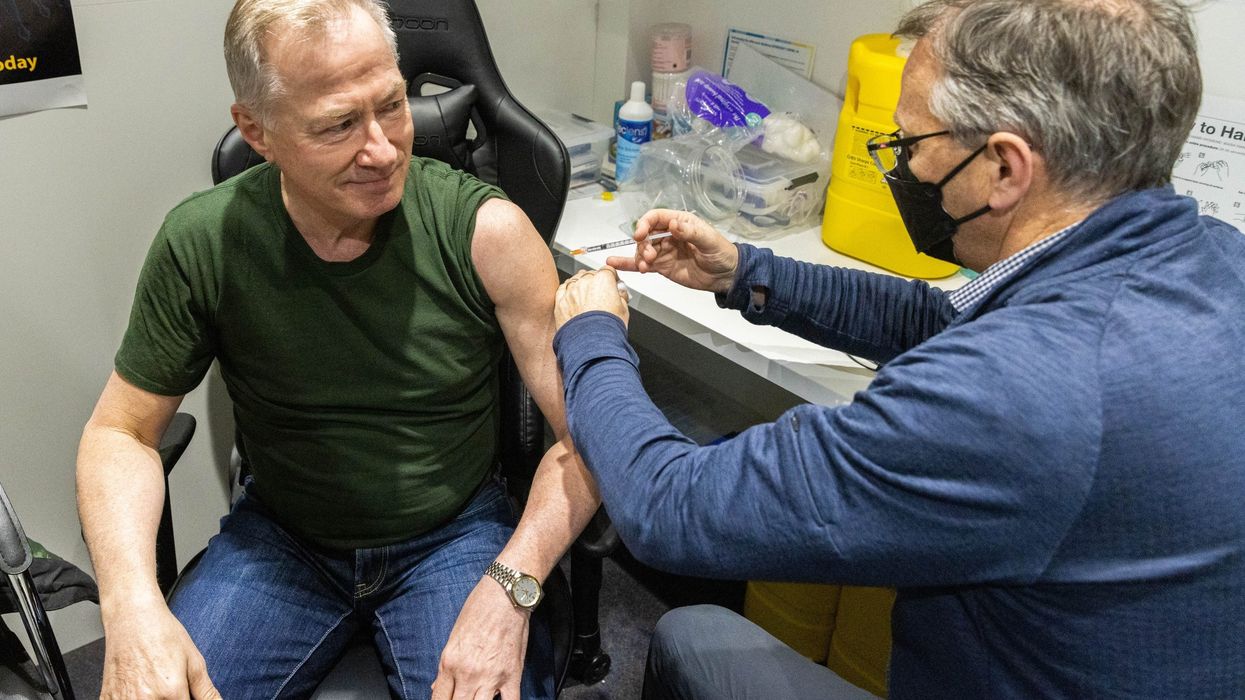According to a recent study published in the journal The Lancet Infectious Diseases, vulnerable individuals aged 65 and over who received the Pfizer bivalent mRNA vaccine booster dose experienced a 72% lower risk of Covid-related hospitalisation and a 68% lower risk of Covid-related death.
The bivalent mRNA vaccine contains components from both the original wild-type Covid strain and an updated component from the omicron strain, which were designed to improve vaccine-induced immunity against the omicron variant and its subsequent subvariants.
Since September 2022, these vaccines have been replacing the older-style monovalent boosters in the USA, Israel, and other countries.
"Our findings highlight the importance of new types of vaccines containing different variants of SARS-CoV-2, which are likely to induce broader immune responses and provide enhanced protection against severe outcomes," explained study co-author Ronen Arbel, Community Medical Services Division, Clalit Health Services, Tel Aviv, Israel.
A retrospective cohort study was conducted in Israel, where bivalent mRNA booster vaccines were prioritised for individuals at high risk of severe Covid-19, especially those aged 65 years or older, enabling the authors to evaluate the effectiveness of the vaccine.
In a study conducted between September 27, 2022, and January 25, 2023, out of 5,69,519 eligible participants who were identified, 1,34,215 (24%) eligible participants received a bivalent mRNA booster vaccination. Of those who received the booster, 32 were hospitalised due to Covid-19, compared to 541 who did not receive the booster. This represents a 72% reduction in hospitalisation risk for those who received the bivalent booster.
The bivalent mRNA booster recipients had a lower adjusted Covid-related hospitalisation risk of 0.035%, down from 0.124% in non-recipients, resulting in an absolute risk reduction of 0.089%. This translates to one hospitalisation avoided for every 1118 vaccinated individuals.
Additionally, the adjusted Covid-related death risk for booster recipients was 0.013%, compared to 0.040% in non-recipients, resulting in an absolute risk reduction of 0.027% or a 68% relative risk reduction. Thus, one Covid-related death was avoided for every 3722 vaccinated individuals.
However, the authors acknowledged the study's limitations, including the small number of hospitalisations and deaths.
The study also cautioned against generalising results to other bivalent vaccines and noted that it was not a direct comparison of bivalent and monovalent vaccines.
The authors emphasised the effectiveness of the Pfizer bivalent vaccine in reducing Covid-19 hospitalisation and death risk in older adults aged 65 or older. They also stated that vaccination remains the primary tool for preventing severe Covid-19.
The study was claimed to be among the first to evaluate the Pfizer bivalent vaccine.
(With inputs from PTI)




